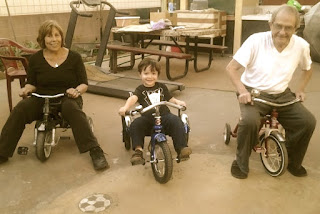Is Privacy a Lost Cause?
 |
| Corbis image |
Imagine
yourself in a room with eyes on the walls - your every thought, action and move
observed and scrutinized. I know it sounds creepy but that is sort of the world
we live in nowadays.
With
an increase in consumer tracking methods and GPS everywhere, privacy is really
hard to come by these days.
Stats
reveal that privacy is a top concern for consumers and something they strive
for, yet the irony is that most consumers (me included) knowingly or
unknowingly partake in things that make privacy a thing of the past.
We
buy products and services online, we download a million apps, we share our
stories and pictures on social media, we sign up for grocery deliveries, we
visit all kinds of websites, we research travel destinations, health issues, watch
online shows, we wear or carry mobile devices that track our every move, our
every step, and our given location.
Google
knows it all.
We’re
generously feeding information into the digital world and by doing so, allowing
others to “see us” and create profiles of who we are and what we’re all about.
While there are pros and cons to all this, I can see how consumers may be
skeptical about the possible misuse of information.
Nonetheless,
all these eyes and ears on us, allow advertisers to collect massive amounts of
data and therefore be able to personalize content and ads specifically geared
to our needs and interests.
While
I find this type of data useful as a marketing strategic planner - who devises
communication strategies relevant to our target audience - data is not everything.
Data
is just numbers, data is cold, data by itself doesn’t motivate. Yes, data tells
me that you’re looking for a new car, that you’re very active on Facebook, that
you like sushi, that you want to renovate your home, or that your looking for natural
cough remedies and what not. But what data doesn’t give us is CONTEXT.
Without
human insight and context, data is meaningless.
I
find it refreshing that Generation Z, who are digital natives, practice more caution
with what they share or are willing to put out there. This is seen with the
proliferation of more anonymous social media outlets like Snapchat and
Whisper.
 |
| Image by Mario Azzi |
My
eleven-year old Gen Z’er is sometimes apprehensive when I post pictures or
videos of him on my Facebook account. When I asked him about it, his answer surprised me: “I don’t want people to judge me. One picture or video is not all
of me. It’s just bits and pieces of who I am, so they are not really seeing all
of me and all that I am.” My jaw dropped
to the floor and I realized he is definitely onto something.
So
while in the online world, data is king, in my planning world, data with the
right context rules.



Comments
Post a Comment